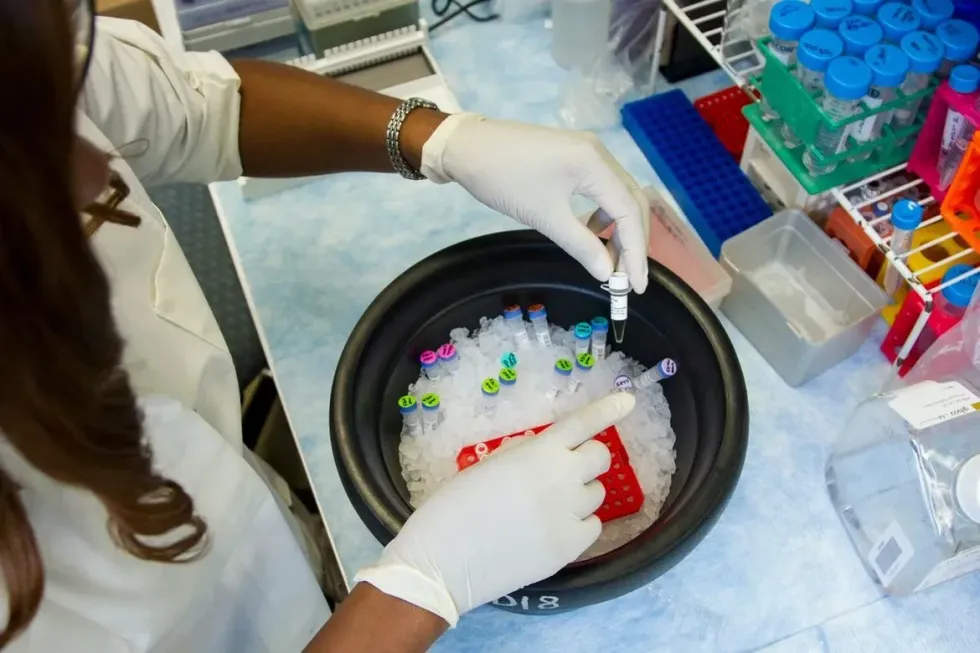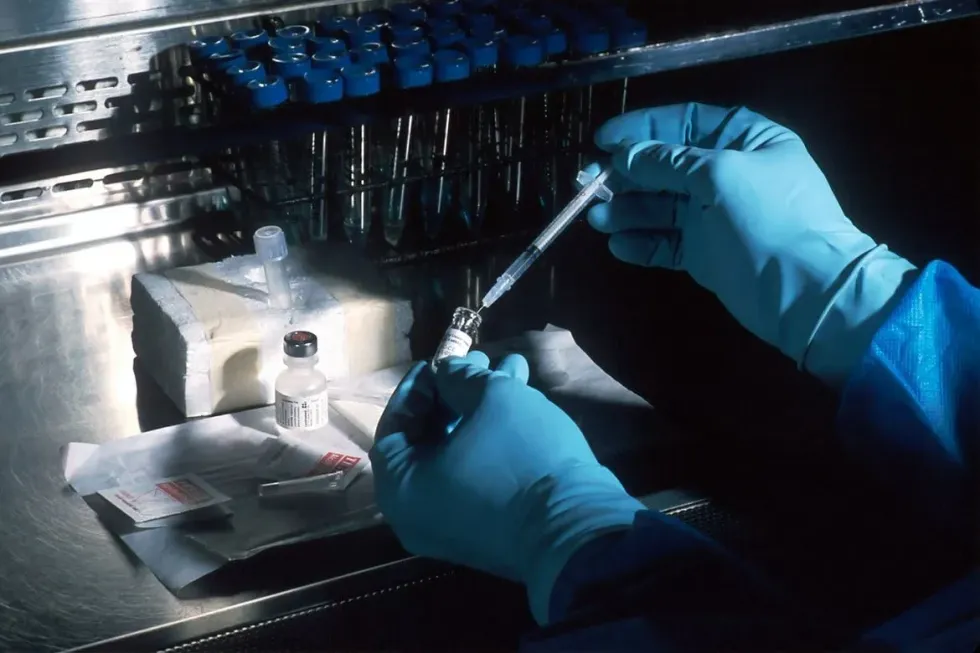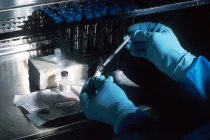57 Impressive Biotechnology Facts For Curious Kids

Modern Biotechnology is a branch of science that makes use of living creatures.
Food Science, Agriculture, and medicine are the primary applications of biotechnology. In biotechnology, living organisms are utilized to create useful products and chemicals or execute an industrial duty.
The term 'biotechnology' first came in 1919 by Hungarian engineer Karl Ereky. He used it to describe the natural processes to create industrial products.
Biotech is broadly defined as applying scientific and engineering principles to produce or modify living organisms for specific purposes. This can include everything from developing new medicines and crops to creating cleaner energy sources and improving animal welfare.
Scientists will be able to design and manufacture human organs and human tissues, single-cell creatures with novel metabolic pathways. Biotechnology's application to basic research (for example, the Human Genome Project) has dramatically enhanced our understanding of biology. Biotech has also achieved tremendous success in treating and prohibiting the growth of cancer cells in the body.
Biotech has been around for centuries, with some of the earliest examples dating back to ancient Greece and China. However, it's only in recent decades that we've seen truly transformative advances in the field, thanks to breakthroughs in areas like gene editing and synthetic biology.
As a result, biotechnology is now a crucial part of our economy, with global revenues estimated to exceed $425 billion by 2020.
What is biotechnology?
Biotechnology is the utilization of living things to create products.
- This can include using plants, animals, and bacteria to create new drugs, foods, or other materials. biotechnology can also be used to improve crops or livestock. It is a very important field in modern society, and it has many applications.
- Some people worry that biotechnology could be used for evil purposes, but most experts believe it can be used safely and responsibly. Biotechnology is a rapidly-growing industry, and it is sure to play a significant role in the future of our world.
- Some of the products are made with biotechnology are Biofuels, Drugs, Foods, Clothing, Paper, Carpets, Chemicals, Plastics, Soaps, Toys, and Biochar.
- Biotechnology is a process that uses living cells or microorganisms to make or change products. It can also be used to improve plants or animals. Biotechnology can help us find new ways to treat infectious diseases, produce food, and recycle waste.
- Biotechnology has been used in agriculture, medicine, and industry for many years. Common biotechnologies include genetically modified foods, artificial enzymes, and medical treatments such as vaccines and gene therapy.
- Biotechnology is a valuable instrument for solving and improving our quality of life. Biotechnology offers excellent potential for the future, but it also raises some concerns about safety and ethics. We need to continue to study biotechnology so that we can use it safely and ethically.
- You're likely aware that some bacteria can make you feel sick; others are necessary for your health and the prevention of infections. The same bacteria can sometimes perform both functions. Helicobacter infections are curable with medications, but there's a catch: the lack of Helicobacter has been linked to esophageal disorders such as reflux esophagitis and some malignancies.
- In other words, while Helicobacter is harmful to our stomachs, it is beneficial to our throats.
- The first successful recombinant- DNA experiment was carried out using bacterial genes.
Importance Of Biotechnology
Biotechnology is one of the most important aspects of our lives. It helps us improve crops, create medicines, and do many other things that make our lives better.
- Without biotechnology, we would not be able to improve our crops and make them more resistant to pests and diseases. We would also not have as many medicines available to us. Biotechnology is very important in our society today, and it will only become more important in the future. There is no doubt that biotechnology has profoundly impacted the world. It has revolutionized the way we approach healthcare, agriculture, and manufacturing.
- The significance of biotechnology has emerged due to the advancement of extensive research and development.
- It is a branch of biology with many applications in medicine, engineering, science and technology, agriculture, and other fields. Biotechnology has the potential to be a fantastic answer to humanity's problems.
- So, what exactly is it all about? In a nutshell, it is the application of chemistry, physics, and engineering ideas to the biological structure.
- The field of genetic engineering is an example of modern-day application. This technology is used to culture tissue and cells to modify living organisms for human use. As a result, biotechnology's importance in agriculture improves crop productivity, which is doubled or even tripled compared to typical harvest.
- It can provide biological protection against pests and diseases, making conventional natural insecticide unnecessary. Biotechnology can transmit genetic traits of crops that can endure changing climate conditions while also improving nutritional quality. Farmers will enjoy a healthier lifestyle as a result of the reduced exposure to chemical residues, as well as a better profit.
- The advantages of the biotech industry can also be felt in a medical setting. Pharmaceutical products and pharmaceuticals, as well as human therapy, are among its technological applications. It aids in the production of huge insulin levels and nutritional supplements for the treatment of diabetic patients.
- The most incredible successful product of biotechnology research is gene therapy, which is used to treat HIV/AIDS and cancer tissues and build up healthy cells.
- Modern Biotechnology applications can be found in industrial plants and industries. They are used to improve the efficiency and competence of the manufacturing process while lowering the environmental impact. To conserve natural resources, waste goods can be handled and recycled.
- Human DNA fingerprinting can be utilized to identify criminals and paternity testing.
- Researchers cloned the chymosin gene from cows into fungus and bacteria, which can manufacture the enzyme in considerably higher quantities and quality during fermentation than dairy animals' stomachs.
- What biotechnology has attained and achieved in such a short period of time is beyond belief. Humanity has just recently begun to appreciate and recognize the limitless possibilities that exist. As technology promises to solve every terrible situation we encounter regularly, humankind anticipates more advanced biotechnology in the future.
- A more stable and reliable technology. This is the significance of biotechnology; it is the future technological revolution.

Four Categories Of Biotechnology
Biotechnology encompasses four major categories identified by color. Here are the four categories in biotechnology
- Medical Biotechnology (Red): As the name implies, medical biotechnology is concerned with human life and health; it improves human health and is used to create various medicines, genes, and vaccines. The goal is primarily to promote human health.
- Red biotechnology can aid in the formulation of pharmaceuticals by determining the dosage of patients and, more particularly, treating patients based on genetic code. This will alter the future of healthcare and ensure that doctors treat each patient individually.
- Red biotechnology is a branch of study that employs standard and non-conventional biological processes, diagnostic methods, and treatments to detect diseases and associated remedies.
- Industrial Biotechnology (White): White industrial biotechnology is the most common and widely used biotechnology in the textile, energy, and food industries. White biotechnology focuses on developing a new procedure that uses natural resources and less energy than traditional ones.
- Because industrial biotechnology was new and unfamiliar to politicians, they did not comprehend the merits of industrial biotechnology.
- Environmental Biotechnology (Green): Environmental and agricultural biotechnology are examples of green biotechnology. Green biotechnology is often used in agriculture to help farmers produce crops more efficiently while also minimizing the usage of chemicals. One of the most important sorts of biotechnology is this.
- Agriculture biotechnology is used to improve a variety of fields, including agriculture, agriculture biotechnology, agriculture biotechnology, agriculture biotechnology, agriculture.
- Plants are being used to remove other poisonous and hazardous metals from the environment.
- Bacteria are being used to boost plant growth and yields.
- Animal biotechnology is the use of breeding technologies for animals.
- Using genetic alteration to assist plants in surviving in a variety of climates.
- To clean the environment, bacteria, fungi, and other microorganisms are used. Environmental biotechnology accomplishes a variety of activities, including
- Biogas is created by using biotechnology to transform trash.
- Plants are being converted into biofuels.
- Finding new techniques to make industrial processes more orderly and clean.
- Marine Biotechnology ( Blue): The fourth form of biotechnology is known as blue biotechnology. It has to do with the research of marine life, particularly sea animals. These organisms are used in the production of pharmaceuticals and as food supplements to improve human health.
- Marine biotechnology is used for a variety of purposes in blue biotechnology. It can also be used as a pain reliever. The goal of marine biotechnology is to develop new energy sources. Biofuel can be grown or generated without interfering with the growth of other plants.
- This blue biotechnology has a significant impact on the industrial sector. Submarines create vast quantities of protein, enzymes, biomaterials, and biopolymers.
- The top four categories of biotechnology listed above are the most essential, and we concentrate on them as well.
- There are various sorts of technologies that are identified by color names, such as grey, yellow, brown, violet, and gold. These color categories of biotechnology were formed or founded as a result of biotechnology research and development in many industries.
Impact Of Biotechnology On Society
The biotechnology sector has revolutionized the way that humans interact with their environment. The ability to genetically engineer plants and animals has led to a number of innovations in agriculture, medicine, and industry.
However, this technology also poses a number of risks to society. In particular, biotechnology can be used to create harmful organisms or products that could be used for terrorism or warfare. As biotechnology becomes more sophisticated, it is important to ensure that these risks are managed effectively.
- Biotechnology heals the world by utilizing nature's own toolkit and our own genetic makeup to cure and guide research lines by lowering infectious disease rates, saving millions of children's lives, reducing life-threatening conditions that affect people everywhere.
- Like every manufactured technology, biotechnology has both positive and harmful environmental consequences. At the same time, biotechnology processes offer humans the means and the weapons they need to resist any harmful consequences that may arise from their use.
- It is also important to consider the social implications of biotechnology. For example, how will genetic engineering change the nature of human relationships? Will we start selecting our children's traits based on genetic tests? These are just some of the questions that need to be considered as biotechnology becomes more pervasive in our society.
- Biotechnology has revolutionized the way humans interact with their environment.
- The ability to genetically engineer plants and animals has led to innovations in agriculture, medicine, industry.
- Biotechnology also poses a risk of creating harmful organisms or products for terrorism or warfare.
- As biotechnology becomes more sophisticated, it is important to manage these risks effectively.
- Biotechnology's application to basic research (for example, the Human Genome Project) has dramatically enhanced our understanding of biology.
- Social implications of biotechnology also need to be considered, such as how will genetic engineering change human relationships? Will we start selecting our children's traits based on genetic tests?
- Biotechnology has the potential to benefit and harm society, and benefits need to outweigh risks. Social implications need to be considered before implementing biotechnological innovations.
- Agriculture: Increased migration to industrialized countries and depleting food supplies were two of the difficulties that the world confronted towards the end of WWII.
- Due to environmental degradation, substantial agricultural lands were no longer cultivable. As a result, a study group was started with the primary objective of assisting countries in increasing their output of food crops using scientific means or, to put it another way, through biotechnology.
- As a result, it was decided to splice and produce a new brand of crops that is more resilient to all pests, illnesses, and other environmental factors.
- This is how GM foods, as well as other food industries, came to be. Yes, we were able to avert a calamity in the making with the help of biotechnology. Also, biotech help farmer to kill weeds or control weeds without damaging the soil. Biotech foods are as good as regular food.
- Vaccines: Scientists were able to develop vaccinations to battle a variety of health conditions, including the H5N1 virus and avian flu virus, thanks to breakthroughs in biotechnology. Biotechnology has been at the forefront of finding critical constituents and assessing disease progression; as a result, all vaccines produced today are the result of biotechnology advancements.
- Early detection and diagnosis: Doctors now can help their patients with a much more accurate diagnosis in a short span of time because of biotechnology. As a result, the physician is better able to treat his patient. This can also be due to numerous diagnostic instruments and biotechnology developments. Human DNA fingerprinting can be utilized to identify criminals and paternity testing.
- In summary, biotechnology has the potential to benefit and harm society in a number of ways. It is important to ensure that the advantages outweigh the risks and consider these implications before implementing any biotechnological innovations.
We Want Your Photos!
More for You
Sources
https://kids.kiddle.co/Biotechnology
https://explorebiotech.com/50-interesting-facts-biotechnology/
https://i3l.ac.id/interestingly-fun-facts-about-biotechnology/
https://www.usatoday.com/story/money/markets/2013/12/10/biotech-breakthrough-facts/3955515/
https://medium.com/computational-biology/interesting-facts-about-biotechnology-260498e5bf95
See All
Bachelor of Arts in Journalism and Mass Communication

Nidhi SahaiBachelor of Arts in Journalism and Mass Communication
Dedicated and experienced, Nidhi is a professional content writer with a strong reputation for delivering high-quality work. She has contributed her expertise to esteemed organizations, including Network 18 Media and Investment Ltd. Driven by her insatiable curiosity and love for journalism and mass communication, Nidhi pursued a Bachelor of Arts degree from Guru Gobind Singh Indraprastha University, graduating with distinction in 2021. During her college years, she discovered her passion for Video Journalism, showcasing her skills as a videographer for her institution. Nidhi's commitment to making a positive impact extends beyond her professional pursuits. Actively engaging in volunteer work, she has contributed to various events and initiatives throughout her academic career.
Bachelor of Fine Arts specializing in International Business

Vikhaash SundararajBachelor of Fine Arts specializing in International Business
With a background in International Business Management, having completed his degree at the University of Hull. Vikhaash has volunteered with 'Teach For India' to help students create a monthly newsletter. In his free time, he enjoys sports and was the assistant captain of his school's hockey team. He has also gained marketing experience through an internship at Decathlon Sports India.
Disclaimer
1) Kidadl is independent and to make our service free to you the reader we are supported by advertising. We hope you love our recommendations for products and services! What we suggest is selected independently by the Kidadl team. If you purchase using the Buy Now button we may earn a small commission. This does not influence our choices. Prices are correct and items are available at the time the article was published but we cannot guarantee that on the time of reading. Please note that Kidadl is a participant in the Amazon Services LLC Associates Program, an affiliate advertising program designed to provide a means for sites to earn advertising fees by advertising and linking to Amazon. We also link to other websites, but are not responsible for their content.
2) At Kidadl, we strive to recommend the very best activities and events. We will always aim to give you accurate information at the date of publication - however, information does change, so it’s important you do your own research, double-check and make the decision that is right for your family. We recognise that not all activities and ideas are appropriate for all children and families or in all circumstances. Our recommended activities are based on age but these are a guide. We recommend that these ideas are used as inspiration, that ideas are undertaken with appropriate adult supervision, and that each adult uses their own discretion and knowledge of their children to consider the safety and suitability. Kidadl cannot accept liability for the execution of these ideas, and parental supervision is advised at all times, as safety is paramount. Anyone using the information provided by Kidadl does so at their own risk and we can not accept liability if things go wrong.
3) Because we are an educational resource, we have quotes and facts about a range of historical and modern figures. We do not endorse the actions of or rhetoric of all the people included in these collections, but we think they are important for growing minds to learn about under the guidance of parents or guardians.







